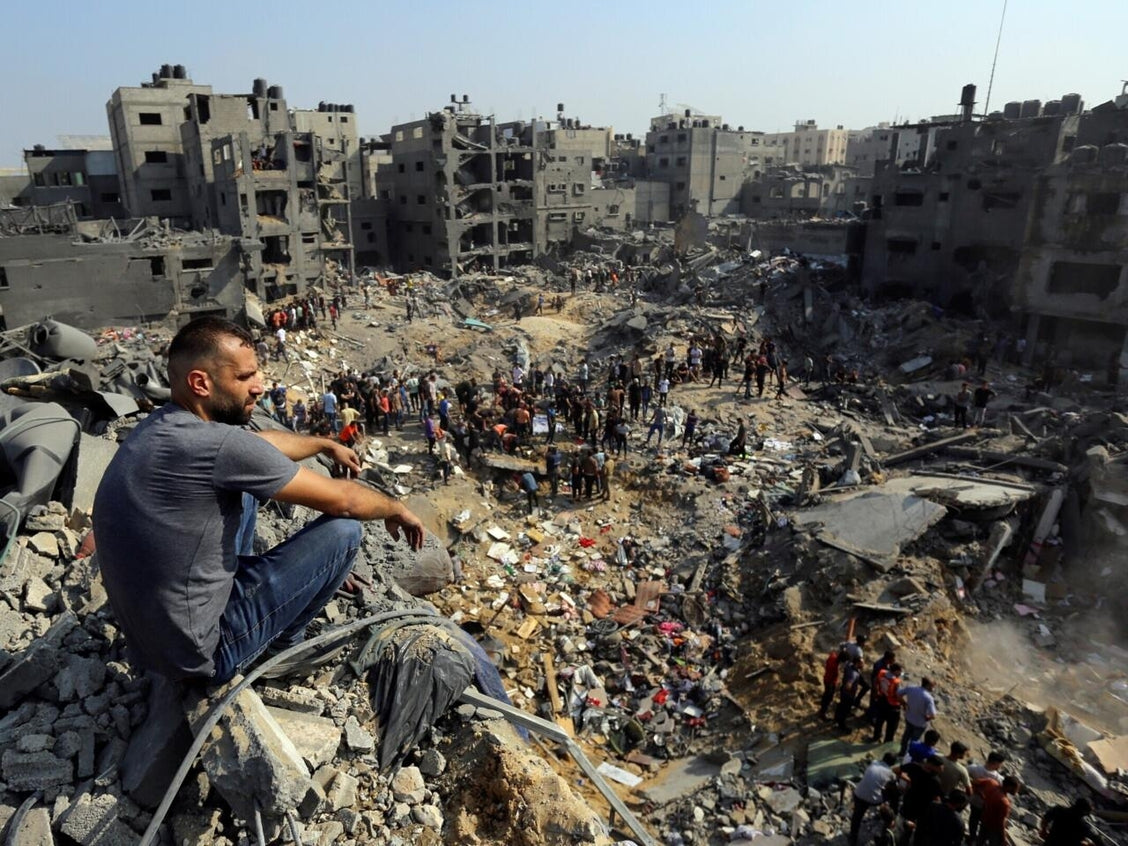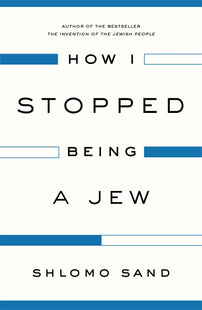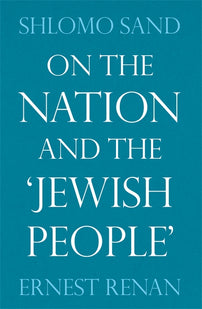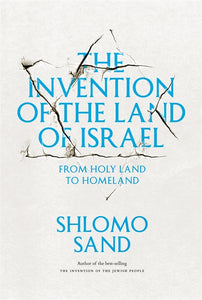When guns are roaring…
"When humans are described in inflated rhetoric as ‘wild animals’, some of them actually become so." Shlomo Sand challenges Israel's victim narrative in this timely reflection on anti-semitism, islamophobia, and the uphill road to peace that lies ahead.

**This article was originally published on the Mediapart blog on 9 November 2023.
The illusion of an all-powerful and invulnerable Jewish state was shattered on 7 October. The catastrophe has considerably deepened mutual hatred and will likely engender further terrible catastrophes. History could, however, teach us other lessons: when there is no other way out, when all extremisms have proved to be dead ends, people are obliged to grit their teeth and to learn to live together.
When humans are described in inflated rhetoric as ‘wild animals’, some of them actually become so. When, in reaction to atrocities perpetrated against us, we do not hesitate to commit even worse atrocities, we are no better morally than those who attacked us. Besides, when we maintain that our ancestors were uprooted from their land two thousand years ago and that this gives us an eternal right to it, while refusing to recognise the claims of the inhabitants of Gaza who were driven from their homes 75 years ago, we cannot regard ourselves as mere victims in a bloody conflict.
When we label as anti-Semitic anyone who dares to criticise our government’s policies, we devalue the significance of the Judeophobia that is characteristic of the long Christian tradition. Make no mistake about it: when the descendants of those who spat us out of Europe and had no hesitation at throwing us onto the Arabs of Palestine now support us, they are not much different from their predecessors.
When Europeans reject poor Muslim immigrants today, accusing them of wanting to impose themselves on Europe, they resemble to a hair their predecessors of the first half of the twentieth century who levelled similar accusations at the Jews who came from the Russian Empire.
And what about our very loyal American friends? In 1924, they enacted segregationist immigration laws designed to prevent non-Protestants from reaching the shores of the United States, thus contributing to the tragic entrapment of so many Jews in a Europe where a massive crime was being prepared. Their current support for Israel, certainly one of their most important clients in terms of armaments, is not a matter of humanitarian generosity, but rather a strategic calculation in the service of their interests in the Middle East.
In comparing Hamas to Isis, the Israeli prime minister, like most of his fellow-thinkers, is doubly mistaken. Firstly, Hamas has not so far committed any murderous attacks in Europe or the United States; secondly, and unlike Isis or al-Qaeda, Hamas, unfortunately, happens to be a nationalist-religious organisation with a broad popular base, and it would seem impossible to destroy it by eliminating a few of its leaders.
The same applies to the Afghan Taliban, the Houthis in Yemen, the Iranian theocracy, and the Lebanese Hezbollah. This is a worrying global phenomenon still on the rise, and more than just Islamist in orientation. Throughout the world, when the values and myths of the future break down, giving way to those of the past, the symbiosis between religion and nationalism triumphs: this is the case with the Hindu supremacists in Bombay, the Buddhists in Myanmar, and the messianic nationalists in Jerusalem.
As secular and atheist historians, however, we should be careful, when describing the manifest cruelty that characterises today’s increasingly hegemonic currents of religious nationalism throughout the post-colonial world, not to forget history or distort it. Indeed, the anti-British revolt in India, the Mau Mau in Kenya, the FLN in Algeria, the Khmer Rouge in Cambodia and even the Viet Cong in Vietnam were all accompanied by acts of violence and anti-colonial massacres not dissimilar to those of today’s religious fundamentalists. It is important to point out, however, that, in the balance sheet of terror, the massacres perpetrated by the dominant political powers have always caused infinitely more victims than the frightful attacks committed by the oppressed.
While most of us know that the Nazis exterminated nearly six million Jews and gypsies, and that the Bolsheviks were responsible for a famine during ‘collectivisation’ that led to the deaths of more than three million Ukrainians, few of us know that the British caused the starvation of ten million Bengalis in the eighteenth century by forcing them to grow opium instead of food. Fewer still know that, in the twentieth century, colonial Belgium was responsible for the deaths of six million Africans in the mines of the Congo and that the Americans killed nearly two million Vietnamese. Historical memory has always been selective, and more often than not shaped by the dominant, rather than by the vanquished or dominated.
In early twenty-first century Israel, few people dispute the prevailing belief that the Palestinians can continue to be dominated indefinitely, in the form of confinement in Gaza and apartheid on the West Bank. The massive recent protests against attempts to restrict democratic freedoms strictly refused to ‘mix subjects’, completely ignoring a 56-year occupation, the human rights of the Palestinians, and the idea of achieving any kind of status of civic equality. It was just a question of defending democracy for Jews, with no interest in what they inflict on others on a daily basis. In this respect, the dominant Israeli policy is not much different from the fundamental positions of Hamas, which aspires to found a great Islamic Palestine that grants limited rights to its Jewish minority.
The unfortunate illusion of an all-powerful Jewish state that cannot be challenged was shattered on 7 October, the fateful day of that terrible massacre. Israel is not really a protected Jewish villa in a subjugated Arab jungle, and there cannot be a Middle East without the Palestinians. The recent catastrophe has considerably deepened mutual hatred and will probably engender further terrible catastrophes in the not too distant future.
History could, however, teach us other lessons: when there is no other way out, when all extremisms have proved to be dead ends, tangled up in each other, they are obliged to grit their teeth and learn to live together. Thus, Switzerland, after being torn apart by extreme violence, finally achieved a confederal peace between German and French speakers in 1848; and Northern Ireland, where Protestants and Catholics killed each other until the "Good Friday agreement" of 1998, likewise shows that violent conflict can give birth to bi-national, multi-national or simply national states.
And, when the time comes for a historic compromise, we may no longer be able to understand why so many of us were driven by such enduring hatred.
Translated by David Fernbach
[book-strip index="1"]


